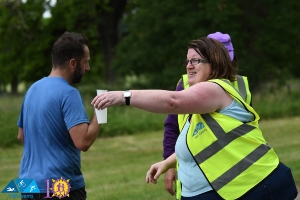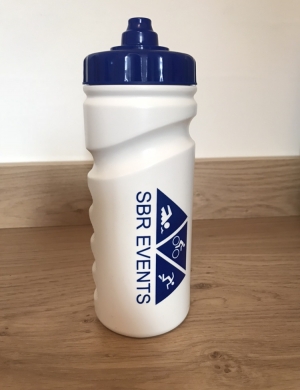How to cope with the heat on your run
Some understanding about how your body cools itself may help you decide how best to adapt your run in warmer weather.
Physiologically, running in warmer weather or climates produces a set of reactions in your body that begin with the fact that our muscles aren’t actually very efficient. According to 1Yannick Molgat-Seon, University of British Columbia – Vancouver, UBC · Department of Physical Therapy, 80 per cent of the energy generated by our muscles ends up as heat. In cooler weather, that inefficiency is what helps in keeping us warm. However, during exercise, the body has to get rid of it. One way is by sweating. Another is by promoting blood flow to the skin. This is important because it’s what carries excess heat from your muscles to the skin, where it can be lost to the environment.
The body has a limited blood supply. ‘You have a competition between blood going to the skin and blood to the active muscles,’ says Molgat-Seon. ‘In this battle, the muscles always lose.’ So even when you’re barely sweating, your muscles are getting less oxygen and therefore are less efficient.
However, it is important to note that not all runners are equally affected. Women generally do better in heat than men. The most probable explanation for this is that women are smaller than men. Women also have a higher surface-to-mass ratio, which allows them to free the heat more efficiently.
Contrary to this, in the men’s marathon at the Atlanta Olympics (which was run at a starting temperature of 23°C, with 90 per cent relative humidity), the winner, South African Josia Thugwane, weighed just over 7st. The silver medallist, South Korean Lee Bong-ju, weighed under 9st.
And the correlation between heat and body size doesn’t only affect marathoners. In laboratory experiments conducted shortly before the 2004 Athens Olympics, exercise physiologist 2, 3 Tim Noakes, author of Lore of Running, found that when the room temperature was ramped up to 35°C, smaller men ran an average 45 seconds per mile faster than larger men in an 8km treadmill time trial. In cool temperatures the two groups performed about equally. The principle also applies at less extreme temperatures.
The key to running in extreme conditions, says 4Greg Pressler, a veteran of the brutal Badwater 135 – an ultra-run in the searing temperatures of Death Valley, California – is thinking about everything that might affect your performance, whether it’s monitoring pace or your choice of clothing. Stints in a sauna can also help with preparation.
It’s also useful to work on hydration, even for shorter races. Use electrolyte tablets while also ensuring maximum hydration. Taking such steps will pay off with larger blood volume and greater resistance to dehydration.
You can also train yourself to drink more liquids. You won’t be able to exceed one litre per hour, but most people aren’t used to consuming even that much, says Pressler, which means that when you’re training for hot conditions, it’s quite easy to become dehydrated. However, remember that when increasing your fluid intake, it’s important to take electrolyte supplements so you don’t create dangerous imbalances.
Along with higher temperatures, summer weather usually means high humidity. The higher the humidity, the more saturated the air is with water, and the harder it is for you to cool off because sweat simply cannot evaporate due to the already saturated air.
Since sweat is composed of plasma from your blood, sweating can decrease blood volume. This is why adequate hydration becomes extremely important in hot weather. You are also losing electrolytes in your sweat, so consuming a sports drink or taking an electrolyte supplement can be vital.
As blood flow is redirected to the skin's surface, it means less blood is available to your working muscles. With less blood available, the heart is forced to work harder to sustain hard running, and the result is a higher heart rate. Simply put, warm, humid weather means your usual run pace has just become much harder.
This also means you will go through carbohydrate stores faster than usual and you are more likely to accumulate a higher level of blood lactate, too.
Here are some tips to help you get through the coming hot weeks:
1. Run at the coolest time of day, which is usually just before sunrise and avoid running during the middle of the day, usually the hottest time.
3. Plan shady routes.
4. Wear loose fitting, light-coloured, technical clothing that wicks away sweat and dries quickly. Very fine merino wicks sweat successfully too.
5. Drink adequate amounts of water (and electrolyte drink).
6. Avoid getting sunburned. Damaged skin loses its ability to sweat, making cooling less efficient.
7. Examine any medications you may be taking because some can increase your sensitivity to heat.
8. Slow your run pace down to adjust for heat and humidity.
9. Run by feel or Perceived Exertion rather than pace. If your run feels hard, it is hard, regardless of actual pace.
10. Running two or three times a week outdoors in the hotter conditions is enough to keep you acclimatised to the heat.
References:
1https://www.researchgate.net/profile/Yannick_Molgat-Seon
2Tim Noakes, Lore of Running https://www.runnersworld.com/advanced/a20805321/the-lore-of-running/
3https://thenoakesfoundation.org/
4Greg Pressler, Badwater. http://blog.oregonlive.com/runoregon/2007/07/greg_pressler_at_badwater.html
By Natalie Pugh (BTF Triathlon Coach -Level 1)



